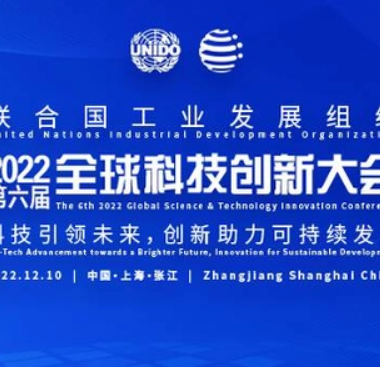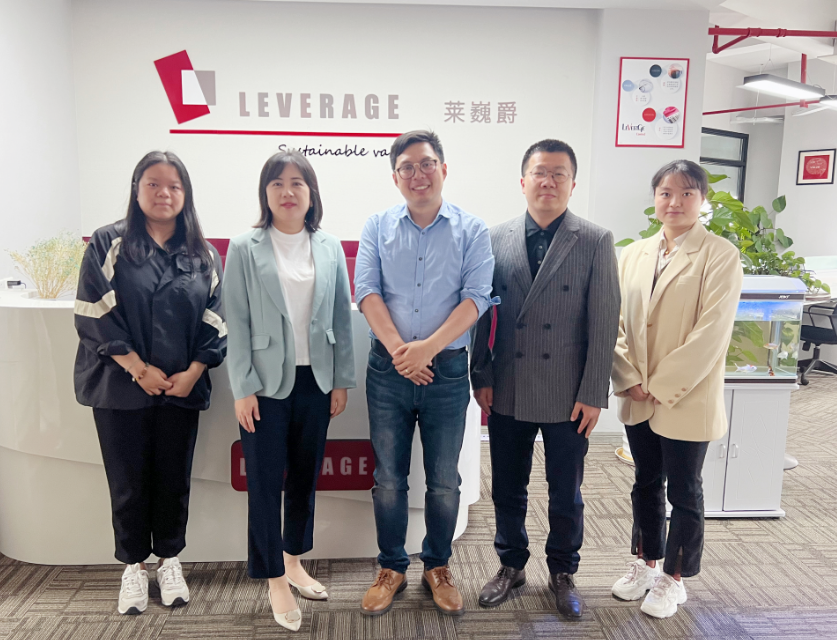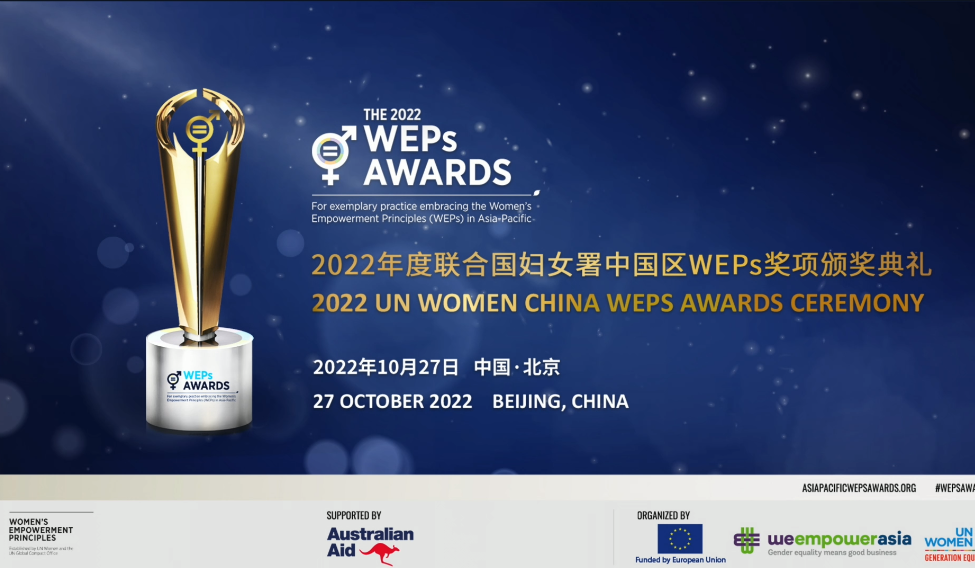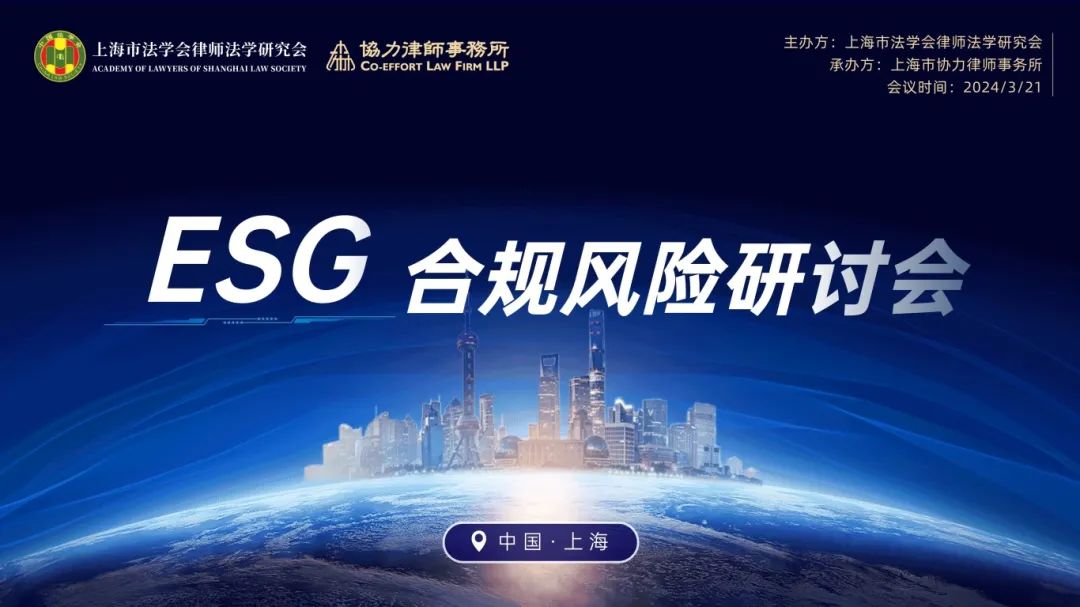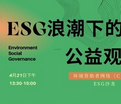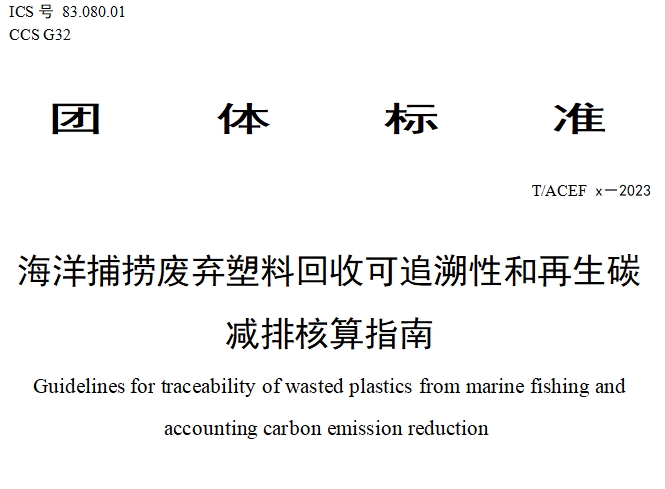Leverage Interprets the Sustainability Development Report Guidelines of the Three Major Exchanges
On February 8, 2024, China's Shanghai Stock Exchange (SSE), Shenzhen Stock Exchange (SZSE), and Beijing Stock Exchange (BSE) jointly released the "Self-Regulatory Guidance for Listed Companies – Sustainability Report (Draft for Comments)." Under the unified guidance of the China Securities Regulatory Commission (CSRC), the three major exchanges have largely aligned their requirements for sustainability disclosures by listed companies. According to the guidance, eligible listed companies are required to publish their 2025 Sustainability Reports by April 30, 2026. The guidance also includes transitional relief measures:
1. For the first reporting period, listed companies are not required to disclose year-on-year changes in relevant indicators.
2. During the reporting periods of 2025 and 2026, for indicators that are difficult to disclose quantitatively, the reporting entities may provide qualitative disclosures only.
The primary purpose of the three exchanges' release of the sustainability disclosure guidance is to require listed companies to establish and improve their sustainability information disclosure systems. This aims to develop a set of sustainability disclosure rules for listed companies that are grounded in China's realities, aligned with international trends, and characterized by Chinese features. The policy also clarifies the implementation path and gradually promotes the rules in a planned and phased manner. The introduction of this policy means that entrepreneurs need to place greater emphasis on sustainability and integrate ESG factors into corporate strategies to meet the requirements of market and regulatory authorities regarding corporate social responsibility and sustainability. By actively responding to these policies, companies can enhance their competitiveness, win the trust of investors and consumers, and achieve long-term sustainable development goals. Entrepreneurs need to consider how to integrate the concept of sustainable development into corporate strategies, how to improve the quality and transparency of information disclosure, and how to address potential challenges and opportunities.
Differences in the Guidance from the Three Exchanges:
While the content framework and details of the guidance issued by the three exchanges are largely consistent, covering general provisions, sustainability information disclosure framework, environmental information disclosure, social information disclosure, corporate governance information disclosure, annexes, and definitions, this consistency helps to unify the standards and requirements for sustainability information disclosure by listed companies, enhancing the consistency and transparency of information disclosure.
However, there are some differences in the requirements for sustainability report disclosures among the SSE, SZSE, and BSE, mainly in the scope of reporting entities and disclosure timelines:
Scope of Reporting Entities:
The SSE requires mandatory disclosure of sustainability reports by companies included in the SSE 180 Index, the STAR 50 Index, and those listed both domestically and overseas, while other listed companies are encouraged to disclose voluntarily.
The SZSE requires mandatory disclosure of sustainability reports by companies included in the SZSE 100 Index, the ChiNext Index, and those listed both domestically and overseas, while other listed companies are encouraged to disclose voluntarily.
The BSE encourages voluntary disclosure of sustainability reports by companies listed on the BSE.
Disclosure Timeline:
Reporting entities are required to prepare the "Sustainability Report" within four months after the end of each fiscal year, in accordance with the guidance. The report should be disclosed concurrently with the annual report, and the reporting entity and period should be consistent with the annual report.
In response to the sustainability report disclosure guidance, Leverage conducted a comparative analysis of the 2022 ESG report of a leading new energy technology company listed on the SZSE (hereinafter referred to as "the company"). This analysis interprets the specific requirements of the three exchanges' guidance to help companies better understand the guidance document.
1. Disclosure Frameworks and Information for Sustainable Development
According to the Environmental Information Disclosure Guidelines, we learn that listed companies should follow the "dual materiality" principle in their sustainable development disclosures, considering both financial materiality and impact materiality. Companies should identify and disclose issues that have a significant impact on corporate value, as well as on economic, social, and environmental factors, based on industry characteristics and business models. In addition to the specified topics, other important issues should also be identified and disclosed. This includes comprehensive information on the company's actions and performance in governance, strategy, impact, risk and opportunity management, as well as metrics and targets. This helps investors and stakeholders to gain a comprehensive understanding of the company's practices and performance in sustainable development.
Leverage's Perspective:
In the sustainable development disclosure framework outlined in the Guidelines, there is a strong emphasis on establishing a comprehensive information reporting mechanism to ensure timely access to data related to sustainable development. Additionally, Leverage believes that it is particularly important to clearly define short-term, medium-term, and long-term goals and align them with the company's strategic planning and resource allocation. This is crucial, as most listed companies' ESG reports currently overlook this requirement.
Leverage's professional team can provide the following services to help businesses prepare and execute dual materiality assessments:
Industry Benchmarking Analysis: Clarify the disclosure scope required by the standards and define the dual materiality assessment. Based on compliance requirements, create a sustainable development value chain map. The scope specification is the foundation of the dual materiality assessment, and streamlining the structured process is also key. Additionally, understand relevant sustainable development issues and promote market consensus on these issues, assessing their impact.
ESG Management System Construction: Clearly define ESG indicators, establish data collection and reporting mechanisms for the enterprise, set goals and targets, etc., to ensure timely updates of data related to sustainable development.
Stakeholder Engagement: Ensure the participation and feedback of stakeholders are genuine and effective. Facilitate communication and collaboration between the enterprise and stakeholders, understand the enterprise's concerns and expectations, and provide detailed disclosures in the report.
Sustainable Development Action Plan and Strategic Consulting: Develop sustainable development action plans and strategic consulting aligned with long-term development strategies and resource allocation. Help enterprises define short-term, medium-term, and long-term goals, ensuring consistency with the enterprise's strategic planning, improving transparency of information, management practices, and enhancing overall sustainable development performance.
ESG Training: Strengthen the enterprise's awareness of sustainable development and assist the enterprise in making a more prominent impact in "human resource management" and "employee training and development," emphasizing employee-related issues in the corporate governance disclosure section.
2. The Section of the Environmental Information Disclosure
The "Guidelines" disclosure set clear requirements for listed companies in terms of environmental information disclosure, covering key issues such as climate change, pollution prevention, ecosystem protection, and resource utilization and circular economy. Companies are required to disclose information on greenhouse gas emissions, emission reduction targets, pollutant discharges, ecological environmental conditions, and resource utilization, in order to demonstrate their responsibility and actions in environmental protection and sustainable development. This will strengthen transparency and social recognition, promoting the long-term stable development of enterprises.
At this stage, disclosure entities should focus on biodiversity protection and circular economy in terms of ecological environmental protection and resource utilization. In terms of biodiversity, companies should disclose protection measures, impact assessments, and ecosystem monitoring and restoration efforts in detail. Regarding the circular economy, companies should focus on resource recycling rates, the application of circular economy models, and waste management and recycling practices. Comprehensive disclosure of these focal points will help demonstrate the company's integrated practices in ecological protection and sustainable development, enhancing its social responsibility image.
Leverage's Perspective:
This company’s ESG report has disclosed data on direct and indirect energy consumption, comprehensive energy intensity, and total water withdrawal in its environmental information disclosure. However, it has not yet published the specific consumption volumes of various types of energy. In light of this, Leverage, in accordance with the requirements of the Guidelines, recommends that the company actively respond to the national “Dual Carbon” strategic goals, initiate carbon accounting and verification work at the earliest opportunity, proactively manage carbon emission risks, and achieve a low-carbon transformation through measures such as equipment upgrades and improvements in resource utilization efficiency.
Considering the current situation of this company and the insufficient ESG information disclosure, particularly the apparent lack of disclosure regarding greenhouse gas emissions and waste discharge, Leverage believes that the focus of disclosures in this section of the Guidelines should be on comprehensive reporting of climate adaptability, low-carbon transition, greenhouse gas verification, and related emission reduction information. Additionally, the disclosure of carbon-related information should be strengthened, including carbon emission inventories, carbon neutrality plans, and carbon market trading. These provisions aim to guide companies in enhancing environmental management, promoting sustainable operations, transparently disclosing key information to the public and stakeholders, improving corporate image, and boosting social recognition and competitiveness, ultimately achieving a win-win situation for both economic benefits and environmental protection. Therefore, in order to better meet the needs of ESG information disclosure, companies should actively respond to this suggestion, enhance the disclosure of relevant information, and contribute to the promotion of sustainable development and the fulfillment of social responsibility.
3. The Section of the Social Information Disclosure
In terms of rural revitalization and social contributions, the Guidelines encourage companies to disclose how they integrate their core business with active support for rural revitalization and social welfare initiatives, in order to promote the sustainable development of both the company and the economy. It also calls for a detailed presentation of the impact of these contributions during the reporting period, particularly regarding their influence on the company's brand and business.
At the same time, more and more companies are enhancing their competitiveness in various aspects through sustainable expansion methods such as innovative investment and internal R&D. In implementing an innovation-driven development strategy, companies should not only focus on economic benefits and shareholders' interests but also pay attention to protecting the interests of creditors, dealing with suppliers, customers, and consumers in good faith, and promoting the sustainable development of the company and the broader economy. The disclosure content should cover key issues such as technological innovation and the transformation of scientific and technological achievements, technology ethics, supply chain management, relationships with small and medium-sized enterprise (SME) suppliers, products and services, safety and quality management, as well as data security and customer privacy protection.
Regarding employees, the Guidelines encourage companies to protect the legal rights and interests of their employees in accordance with the law, provide healthy and safe working conditions, enhance employee training, and fulfill their responsibilities for safeguarding employee rights. The reporting entities should disclose information on employee recruitment and compensation, occupational health and safety measures, and employee career development and training during the reporting period. These measures not only help companies achieve sustainable development in multiple areas but also reflect their commitment to social responsibility and their preparedness for future development.
4. The Section of the Corporate Governance Disclosure
The Guidelines have put forward specific requirements for the disclosure of corporate governance information, mainly involving two aspects: the governance mechanisms related to sustainable development and the prevention of commercial bribery and unfair competition.
Governance Mechanisms Related to Sustainable Development:
The disclosure subject should integrate the concept of sustainable development and related measures into the company's governance system and processes, improving governance mechanisms and promoting sustainable development, in accordance with the company's actual situation and the Guidelines. This means that the company needs to clearly define sustainability goals and responsibilities within its governance structure, ensuring that its business activities align with the requirements of sustainable development, and incorporate sustainability into daily decision-making and management processes.
Preventing Commercial Bribery and Unfair Competition:
The disclosure subject should follow the principles of voluntariness, fairness, equivalent compensation, and good faith in its business activities, and comply with social ethics and business morals. The company should not seek improper benefits through illegal activities such as bribery, nor should it infringe on others' intellectual property rights or engage in unfair competition. The disclosure subject should disclose the specific situation of anti-commercial bribery, anti-corruption, and anti-unfair competition efforts during the reporting period to demonstrate the company's compliance measures and actual operations in these areas.
Leverage's Perspective:
Currently, the company's 2022 ESG report shows that there has been insufficient disclosure regarding commercial bribery and corruption incidents that occurred during the reporting period, this includes matters such as employee disciplinary actions, investigations, termination of partner contracts, bribery and corruption lawsuits, etc. Based on the Guideline, we suggest that the company provide detailed explanations, including a clear statement confirming that no such events occurred. Similarly, regarding unfair competition, such as incidents leading to lawsuits or significant administrative penalties, the company should clearly state that no such events took place and include specific details about any lawsuits, the amounts involved, administrative penalties, and corrective measures already implemented.
Leverage recommends that the company provide detailed disclosure of commercial bribery, corruption incidents, and unfair competition situations during the reporting period, including employee disciplinary actions, investigations, partner contract terminations, etc. If no such events have occurred, it is also essential to clearly state that. It is also suggested that the company offer improvement recommendations and demonstrate corrective actions to enhance risk management. Transparent disclosure and proactive improvement measures will help improve compliance levels and public trust.
Currently, the company's 2022 ESG report shows that there has been insufficient disclosure regarding commercial bribery and corruption incidents that occurred during the reporting period. This includes issues such as employee disciplinary actions, investigations, termination of partner contracts, and bribery and corruption lawsuits. Additionally, based on the Guidelines, we recommend that the company provide a detailed explanation, including a clear statement about the absence of such incidents. Similarly, for cases of unfair competition, such as those leading to litigation or significant administrative penalties, the company should clearly state that no such incidents have occurred, and provide details on the specific lawsuits, amounts involved, administrative penalties, and corrective measures taken.
Leverage recommends that during the reporting period, the company should provide detailed disclosure of commercial bribery, corruption incidents, and unfair competition, including employee disciplinary actions, investigations, termination of partner contracts, etc. If no such incidents have occurred, it should also be clearly stated. It is advised that the company propose improvement suggestions and demonstrate corrective measures to strengthen risk management. Transparent disclosure and proactive improvement measures will help enhance compliance levels and public trust.
5. Disclosure Quality
The Guidelines encourage disclosure entities to hire third-party organizations to verify their Sustainability Report. It emphasizes the need to disclose the verification report, the independence of the verifier from the disclosure entity, the qualifications and experience of the verification organization, the scope of the verification, the main procedures and methods used, limitations, and the final verification opinion. Such disclosures can enhance the transparency and credibility of the sustainability report, increasing the trust of investors and stakeholders in the report.
Leverage's Perspective:
At the management level, enterprises need to integrate sustainable development management with traditional business risk management and financial management, recognizing their close interrelationship rather than treating sustainable development management as an isolated branding effort.
Additionally, companies should establish a top-down sustainability governance structure, strengthen the supervision of the board of directors, and ensure that sustainability issues are incorporated into daily management activities and implemented in the routine practices of relevant departments, rather than being treated solely as an annual reporting task.
In terms of management approaches, companies should consider adopting digital management methods, using digital systems to collect relevant data, and ensuring interoperability between different data sources to provide important management decision-making references and support the disclosure of quantitative data in sustainability reports, as well as year-on-year data comparisons.
In recent years, A-share listed companies have shown an increasing trend in voluntarily disclosing sustainability/ESG information with higher quality, and the implementation of the "Sustainable Disclosure Guidelines" has had a positive impact on market participants.
Leverage provides services such as technical consulting for Ecovadis/CDP/SBTi/CSA/MSCI, the ILO-SCORE Corporate Sustainability Project, ISO management system certifications (including ISO9001, ISO14001, ISO45001, ISO13485, ISO37001, ISO37301, etc.), SA8000 social responsibility audits, corporate integrity assessments, customized corporate social responsibility solutions and CSR report compilation, ESG strategy consulting and report compilation, ESG audits, green supply chain assessments, product carbon footprint calculations, organizational carbon verifications, and carbon neutrality solutions. It is also a member of the IPE organization, an authorized institution for the ILO International Labour Organization SCORE Sustainability Project, and a member of the UNGC (United Nations Global Compact). Leverage can offer ESG governance framework consulting and services such as AA1000 assurance and ESG training to help companies master the ESG information disclosure system and improve their ratings, thereby enhancing their brand and reputational impact.
6. Implementation Proposals
Significant progress in the standardization and regularization of sustainability disclosures will bring more business opportunities to China. To avoid increasingly costly and ineffective information disclosure, further advancement in standardization and structuring is needed. We believe that:
When it comes to key areas such as emissions, energy consumption, waste management, employee turnover rates, and diversity targets, companies should use self-reporting to provide a basis for transparency and trust. However, they must ensure the accuracy and transparency of the data, preferably through independent third-party verification.
In terms of information disclosure, companies should adhere to the principles of authenticity, accuracy, completeness, balance, comparability, and consistency. They should avoid over-packaging and false advertising to prevent ESG from becoming a tool for "greenwashing." At the same time, they should increase the proportion of quantitative disclosures, and ESG reports should be tailored to the characteristics of each company.
Companies should focus on conducting risk assessments and due diligence on the potential significant adverse impacts on suppliers, business partners, infrastructure projects, and investments. They should implement ESG governance internally at an early stage and establish a robust governance system, including ESG performance monitoring, internal auditing, evaluation, and continuous improvement of internal control mechanisms, to strengthen the foundation of information disclosure.
If you want to know more information, please contact us:
■ Shanghai :
Leverage Limited (Shanghai) Co., Ltd.
Address: Room 402, No 2. Building, No .1328, Hengnan Rd, Shanghai, China
Phone: + 86 21 64067720
Email: info@leveragelimited.com
■ Hongkong :
Leverage Global Limited
Address: Room 1318-19, Hollywood Plaza, 610 Nathan Road, Mongkok, Kowloon, Hong Kong
Phone: +852 30696906
Email: bruce.lau@leveragelimited.com

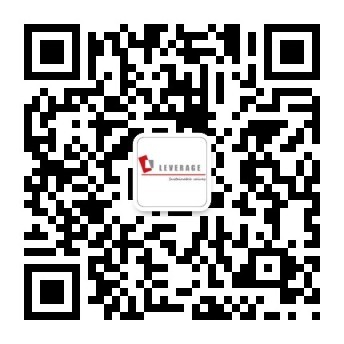
【Contact Us】
Tel:
+86 21 64067720
Email: info@leveragelimited.com



